SEARCH BY TITLE
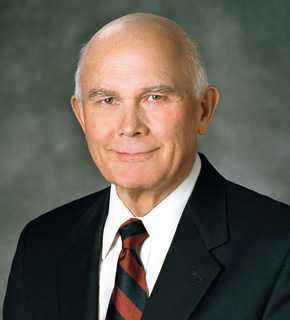 “Always Have His Spirit”
“Always Have His Spirit”
I have chosen to speak about the relationship between our partaking of the sacrament and our enjoying the blessings available from the gift of the Holy Ghost. In modern revelation the Lord commanded: “That thou mayest more fully keep thyself unspotted from the world, thou shalt go to the house of prayer and offer up thy sacraments upon my holy day”. As we partake of the sacrament each week, we ponder the Atonement of the Lord Jesus Christ and we reaffirm and renew the covenants we made when we were baptized. These acts of worship and commitment are described in the revealed prayer the priest offers upon the bread. As stated in that prayer, we partake of the bread “in remembrance of the body” of our Savior, and by doing so we witness to God, the Eternal Father, “that [we] are willing to take upon [us] the name of [his] Son, and always remember him and keep his commandments which he has given [us]”. After we were baptized, hands were laid upon our heads and we were given the gift of the Holy Ghost. When we consciously and sincerely renew our baptismal covenants as we partake of the sacrament, we renew our qualification for the promise “that [we] may always have his Spirit to be with [us]”. We cannot overstate the importance of that promise. President Wilford Woodruff called the gift of the Holy Ghost the greatest gift we can receive in mortality. Unfortunately, the great value of that gift and the important conditions for its fulfillment are not well understood. Nephi prophesied that in the last days churches would be built up that would “teach with their learning, and deny the Holy Ghost, which giveth utterance”. He also pronounced “wo” upon “him that hearkeneth unto the precepts of men, and denieth the power of God, and the gift of the Holy Ghost!”.
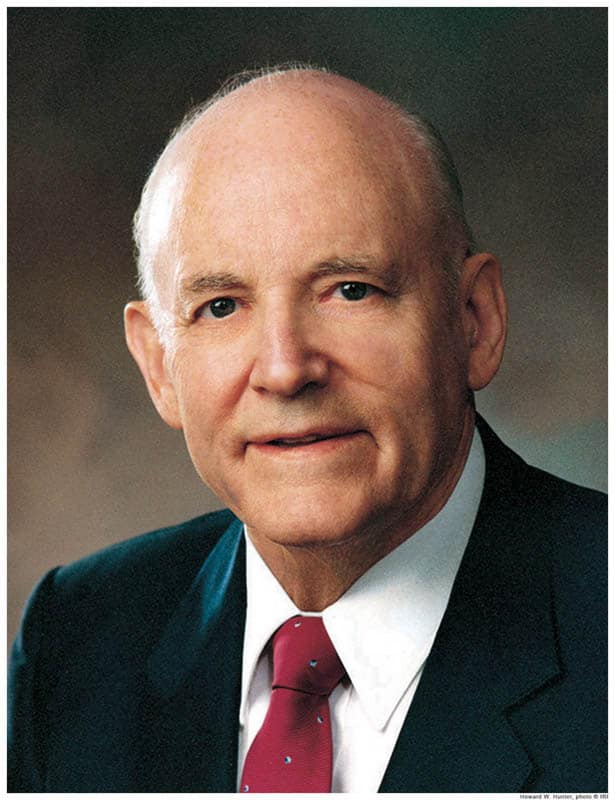 Blessed from on High
Blessed from on High
All of us face times in our lives when we need heavenly help in a special and urgent way. We all have moments when we are overwhelmed by circumstances or confused by the counsel we get from others, and we feel a great need to receive spiritual guidance, a great need to find the right path and do the right thing. In the scriptural preface to this latter-day dispensation, the Lord promised that if we would be humble in such times of need and turn to him for aid, we would “be made strong, and [be] blessed from on high, and receive knowledge from time to time.” That help is ours if we will but seek it, trust in it, and follow what King Benjamin, in the Book of Mormon, called “the enticings of the Holy Spirit.” Perhaps no promise in life is more reassuring than that promise of divine assistance and spiritual guidance in times of need. It is a gift freely given from heaven, a gift that we need from our earliest youth through the very latest days of our lives. Allow me to use three examples this morning of such spiritual experiences, examples that recall the anxious moments of the very young as well as the possibility of continued spiritual growth for those who are not so young.
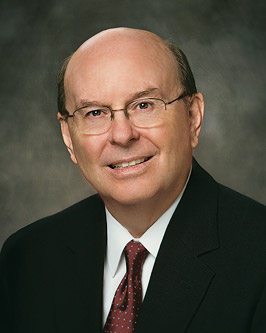 Can Ye Feel So Now?
Can Ye Feel So Now?
In my view, those of you in the rising generation are better prepared than any previous generation. Your knowledge of the scriptures is particularly impressive. However, the challenges your generation faces as you prepare for service are similar to those faced by all members of the Church. We are all aware the culture in most of the world is not conducive to righteousness or spiritual commitment. Throughout history, Church leaders have warned the people and taught repentance. In the Book of Mormon, Alma the Younger was so concerned about unrighteousness and lack of commitment that he resigned as chief judge, the leader of the people of Nephi, and concentrated all his efforts on his prophetic calling. In one of the most profound verses in all of scripture, Alma proclaims, “If ye have experienced a change of heart, and if ye have felt to sing the song of redeeming love, I would ask, can ye feel so now?” . . Today moral deterioration has escalated. One prominent writer recently said, “Everyone knows the culture is poisonous, and nobody expects that to change.” The constant portrayal of violence and immorality in music, entertainment, art, and other media in our day-to-day culture is unprecedented. This was dramatically described by a highly respected Baptist theologian when he stated, “The spiritual immune system of an entire civilization has been wounded.”It is not surprising that some in the Church believe they can’t answer Alma’s question with a resounding yes. They do not “feel so now.” They feel they are in a spiritual drought. Others are angry, hurt, or disillusioned. If these descriptions apply to you, it is important to evaluate why you cannot “feel so now.” Many who are in a spiritual drought and lack commitment have not necessarily been involved in major sins or transgressions, but they have made unwise choices. Some are casual in their observance of sacred covenants. Others spend most of their time giving first-class devotion to lesser causes. Some allow intense cultural or political views to weaken their allegiance to the gospel of Jesus Christ. Some have immersed themselves in Internet materials that magnify, exaggerate, and, in some cases, invent shortcomings of early Church leaders. Then they draw incorrect conclusions that can affect testimony. Any who have made these choices can repent and be spiritually renewed.
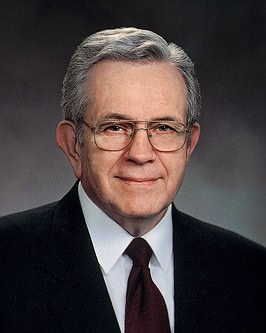 The Candle of the Lord
The Candle of the Lord
The voice of the Spirit is described in the scripture as being neither “loud” nor “harsh.” It is “not a voice of thunder, neither … voice of a great tumultuous noise.” But rather, “a still voice of perfect mildness, as if it had been a whisper,” and it can “pierce even to the very soul” and “cause [the heart] to burn.” Remember, Elijah found the voice of the Lord was not in the wind, nor in the earthquake, nor in the fire, but was a “still small voice.”. The Spirit does not get our attention by shouting or shaking us with a heavy hand. Rather it whispers. It caresses so gently that if we are preoccupied we may not feel it at all. (No wonder that the Word of Wisdom was revealed to us, for how could the drunkard or the addict feel such a voice?) Occasionally it will press just firmly enough for us to pay heed. But most of the time, if we do not heed the gentle feeling, the Spirit will withdraw and wait until we come seeking and listening and say in our manner and expression, like Samuel of ancient times, “Speak [Lord], for thy servant heareth.”
 An Educated Conscience
An Educated Conscience
Elder Bruce R. McConkie in a message to institute and seminary people on this campus several years ago used this physical illustration to distinguish between the Spirit of Jesus Christ and the Holy Ghost. It was very instructive and impressive to me. He said, “The Spirit of the Holy Ghost could be compared to a radio transmitter; you and I, to the radio receivers. The radio waves would be the Spirit of Jesus Christ.” This physical symbol illustrates the difference. The Holy Ghost is a member of the Godhead who performs very specific functions on this earth—to sanctify, to guide, to witness, to testify of the Father and Son and things pertaining to their kingdom, and to confirm the promise of the Father when you and I enter into a covenant relationship in the waters of baptism. When we renew our covenants in other ordinances the Holy Ghost confirms the promise of the Father to us, his covenant children, that if we will live true we will have peace in this world and eternal life in the world to come. The Holy Ghost then would give us guidance, personal revelation, and personal commandments regarding the affairs of our lives. President McKay taught that to all members of the Church who are in the line of their duty the Holy Ghost normally speaks through their consciences. The Lord may choose many ways to speak, but it seems that the still, small voice, the enlightened conscience, or heart within a person would be the natural one for him to choose. However, it may require some other way to reach a man who is perhaps beyond the experience or the words of Christ which have been deposited within that conscience, or it may require the imposition of keys, priesthood powers, or certain other special blessings. The choice would lie in the Lord’s hands according to his purposes. But for most of us most of the time the Holy Ghost will speak through our consciences. The Spirit of Jesus Christ is the medium through which the Holy Ghost, this member of the Godhead, performs his unique and special functions. I would like to ask four questions and ask you to ponder carefully the answers to these questions in your heart, your conscience. The still, small voice will give to you an inward awareness of these questions. You won’t hear a voice in your ear. You’ll feel it; you’ll sense it. There’s an awareness, particularly if you have educated your conscience through the teachings of the Church and prayer and scripture study.
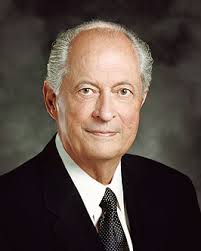 Gifts of the Spirit
Gifts of the Spirit
The phrase “return with honor” is a very clear description of the purpose of life here in our mortal probation. In our premortal state in heaven, we lived in the presence of God the Father; His Son, Jesus Christ; and the Holy Ghost. Our goal in coming to this mortal probation is to “return with honor” back into the presence of God the Father, Jesus Christ, and the Holy Ghost eternally. This is called eternal life. Eternal life is our goal at the end of our sojourn on earth. After birth one of the most significant events in our life is baptism. The prophet Nephi describes baptism as a gate that we enter, after the gift of faith and repentance, to receive the gift of the Holy Ghost. After entering the gate of baptism, we begin traveling a straight and narrow path that we remain on through our obedience, and that, if we endure to the end, leads us to eternal life. I’d like to discuss the role of the gifts of the Spirit that will help each of us achieve our goal of eternal life. . . The gifts of the Spirit can guide and enrich our lives. They can strengthen us spiritually and temporally. They can help us bless the lives of others. Most important, they can bring us comfort in times of trial. They can help us magnify our callings. They can help guide us in our relationships. They can help us avoid being deceived. I bear testimony that God has given us the gifts of the Spirit to allow us to be drawn more closely into His circle of love. He desires that we should receive these gifts of the Spirit and magnify them and have them grow within us. We have to teach one another how to seek after them. As we do, our faith in Him will increase and our true destiny will be fulfilled, ultimately to return to His presence as His valiant sons and daughters.
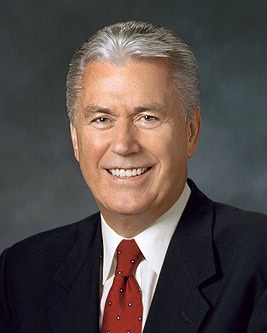 Have We Not Reason to Rejoice?
Have We Not Reason to Rejoice?
The Prophet Joseph Smith followed the same pattern of clarity and plainness when he explained to the world in a very concise way “the first principles and ordinances of the Gospel”, which we must accept to receive the eternal blessings of the gospel: First, faith in the Lord Jesus Christ—believing in the Redeemer, the Son of God, “with unshaken faith in him, relying wholly upon the merits of him who is mighty to save” and then “[pressing] forward with a steadfastness in Christ, … feasting upon the word of Christ”. Second, repentance, which includes a change of mind, offering up “a sacrifice … [of] a broken heart and a contrite spirit”; giving up sin and becoming meek and humble “as a little child”. Third, baptism by immersion for the remission of sins and as a covenant to keep the commandments of God and take upon us the name of Christ. Fourth, laying on of hands for the gift of the Holy Ghost, also known as baptism by fire, which sanctifies us and makes us “new creatures,” born of God. The gift of the Holy Ghost, given to us by our Heavenly Father and administered by one having authority, includes the merciful promise: “If ye will enter in by the way, and receive the Holy Ghost, it will show unto you all things what ye should do”. Through the constant companionship of the Holy Ghost, every member of the Church can receive “the words of Christ” directly, at any time or place. This personal divine guidance helps us to remain valiant in the testimony of Jesus Christ and endure to the end of our days. Isn’t this wonderful! Have we not reason to rejoice?
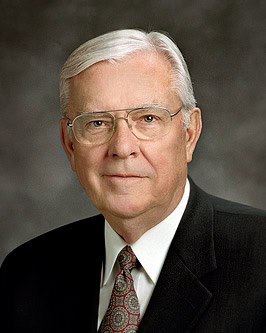 Here Am I, Send Me
Here Am I, Send Me
Nephi taught clearly that the Holy Ghost “is the gift of God unto all those who diligently seek him” and that “he that diligently seeketh shall find” (1 Nephi 10:17, 19). The stunning reality, my dear young brothers and sisters, is that you control how close you are to the Lord. You determine just how clear and readily available promptings from the Holy Ghost will be. You determine this by your actions, by your attitude, by the choices you make, by the things you watch and wear and listen to and read, and by how consistently and sincerely you invite the Spirit into your life. Contemplate for a moment the extent and the impact of this blessing! You have been given a gift that when exercised and respected will give you the answers to all of the confusing, thorny questions and problems you will face in your lives.
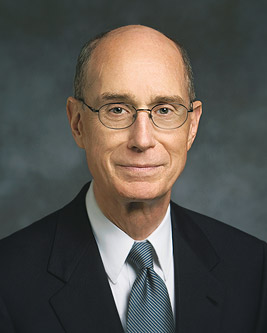 O Remember, Remember
O Remember, Remember
The key to the remembering that brings and maintains testimony is receiving the Holy Ghost as a companion. It is the Holy Ghost who helps us see what God has done for us. It is the Holy Ghost who can help those we serve to see what God has done for them. Heavenly Father has given a simple pattern for us to receive the Holy Ghost not once but continually in the tumult of our daily lives. The pattern is repeated in the sacramental prayer: We promise that we will always remember the Savior. We promise to take His name upon us. We promise to keep His commandments. And we are promised that if we do that, we will have His Spirit to be with us. Those promises work together in a wonderful way to strengthen our testimonies and in time, through the Atonement, to change our natures as we keep our part of the promise. It is the Holy Ghost who testifies that Jesus Christ is the Beloved Son of a Heavenly Father who loves us and wants us to have eternal life with Him in families. With even the beginning of that testimony, we feel a desire to serve Him and to keep His commandments. When we persist in doing that, we receive the gifts of the Holy Ghost to give us power in our service. We come to see the hand of God more clearly, so clearly that in time we not only remember Him, but we come to love Him and, through the power of the Atonement, become more like Him.
 On the Wings of Eagles
On the Wings of Eagles
You have an all-encompassing true source of power available to help you reach the purpose of your creation. This is the power of God, exercising a subtle and loving influence in the lives of His children, lifting you and keeping you aloft. It is manifested as the Light of Christ, the Spirit of Christ, the Spirit of God, the Holy Ghost, and the gift of the Holy Ghost. The Latin source of the word comforter—com fortis—means “together strong.” As the Holy Ghost visits your own spirit, you become stronger than you are by yourself. When you receive the Holy Ghost, you receive strength, power, peace, and comfort. . . President Marion G. Romney, First Counselor in the First Presidency, gave us encouragement: “You can make every decision in your life correctly if you can learn to follow the guidance of the Holy Spirit. This you can do if you will discipline yourself to yield your own feelings to the promptings of the Spirit. Study your problems and prayerfully make a decision. Then take that decision and say to him, in a simple, honest supplication, ‘Father, I want to make the right decision. I want to do the right thing. This is what I think I should do; let me know if it is the right course.’ Doing this, you can get the burning in your bosom, if your decision is right. … When you learn to walk by the Spirit, you never need to make a mistake.” The Prophet Joseph Smith talked about the promptings of the Spirit as “sudden strokes of ideas.” The Holy Ghost will make you independent. If you will learn how to have the Holy Ghost as a constant companion, all other needful things will fall in place. Through your personal righteousness the Spirit of God will guide you to learn to control yourself, to enhance your attitude, to increase your spiritual altitude, and to find and trust the true source of divine power.
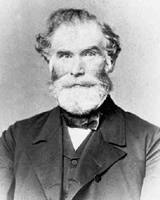 The Spirit and The Sacrament
The Spirit and The Sacrament
And we furthermore believe that [it is] our privilege to receive the gift of [the] Holy Ghost. … It will cleanse you from evil desires and affections and corrupt lust. What more [will it] do? Lead you unto all truth. It will take all things further and show them unto you. This will give you new revelation. … This is the gift promise[d] to you that have not yet received the gospel. If you will go forth in obedience to the gospel, humble yourselves like little children before and be determined to forsake your sins and sin no more, this gift [will] rest upon you. You shall be filled with knowledge of things to come, knowledge of God, understand the things of further futurity. You shall be able to overcome all things and prevail against the power of darkness and obtain the blessings [the] Lord God of Israel designs to pour upon his saints.
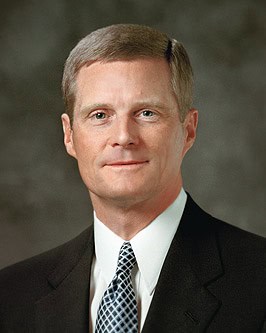 That We May Always Have His Spirit to Be with Us
That We May Always Have His Spirit to Be with Us
Following our baptism, each of us had hands placed upon our head by those with priesthood authority and was confirmed a member of The Church of Jesus Christ of Latter-day Saints, and the Holy Ghost was conferred upon us. The statement “receive the Holy Ghost” in our confirmation was a directive to strive for the baptism of the Spirit. The Prophet Joseph Smith taught: “You might as well baptize a bag of sand as a man, if not done in view of the remission of sins and getting of the Holy Ghost. Baptism by water is but half a baptism, and is good for nothing without the other half—that is, the baptism of the Holy Ghost” (History of the Church, 5:499). We were baptized by immersion in water for the remission of sins. We must also be baptized by and immersed in the Spirit of the Lord, “and then cometh a remission of your sins by fire and by the Holy Ghost”. As we gain experience with the Holy Ghost, we learn that the intensity with which we feel the Spirit’s influence is not always the same. Strong, dramatic spiritual impressions do not come to us frequently. Even as we strive to be faithful and obedient, there simply are times when the direction, assurance, and peace of the Spirit are not readily recognizable in our lives. In fact, the Book of Mormon describes faithful Lamanites who “were baptized with fire and with the Holy Ghost, and they knew it not”. The influence of the Holy Ghost is described in the scriptures as “a still small voice” and a “voice of perfect mildness”. Thus, the Spirit of the Lord usually communicates with us in ways that are quiet, delicate, and subtle.
 That We May Be One
That We May Be One
You remember the Savior prayed, “For their sakes”—speaking of the Apostles—“I sanctify myself, that they also might be sanctified through the truth”. The Holy Ghost. We can have it as our companion because the Lord restored the Melchizedek Priesthood through the Prophet Joseph Smith. The keys of that priesthood are on the earth today. By its power we can make covenants which allow us to have the Holy Ghost constantly. Where people have that Spirit with them, we may expect harmony. The Spirit puts the testimony of truth in our hearts, which unifies those who share that testimony. The Spirit of God never generates contention. It never generates the feelings of distinctions between people which lead to strife. It leads to personal peace and a feeling of union with others. It unifies souls. A unified family, a unified Church, and a world at peace depend on unified souls. Even a child can understand what to do to have the Holy Ghost as a companion. The sacramental prayer tells us. We hear it every week as we attend our sacrament meetings. In those sacred moments we renew the covenants we made at baptism And the Lord reminds us of the promise we received as we were confirmed members of the Church—the promise that we might receive the Holy Ghost. Here are the words of the sacramental prayer: “They are willing to take upon them the name of thy Son, and always remember him and keep his commandments which he has given them; that they may always have his Spirit to be with them”. We can have His Spirit by keeping that covenant. First, we promise to take His name upon us. That means we must see ourselves as His. We will put Him first in our lives. We will want what He wants rather than what we want or what the world teaches us to want. As long as we love the things of the world first, there will be no peace in us. Holding an ideal for a family or a nation of comfort through material goods will, at last, divide them. The ideal of doing for each other what the Lord would have us do, which follows naturally from taking His name upon us, can take us to a spiritual level which is a touch of heaven on earth.


